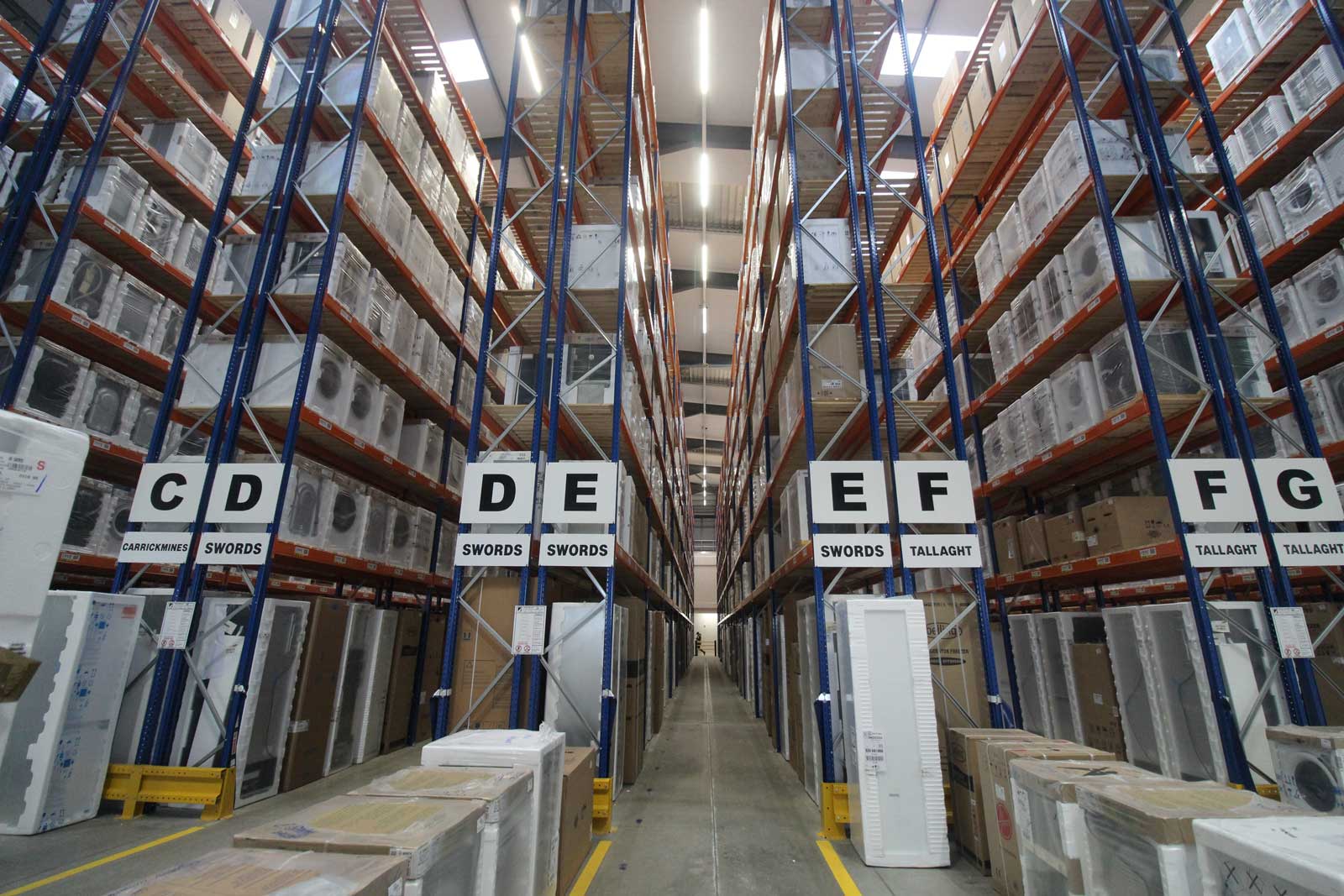Stow High Bay Racking
Racking in perfection
Pallet racking operated by cranes requires special arrangements for tolerances in manufacturing and assembly. Perfect positioning and levelling are vital for such installations. The cranes are running on a floor mounted rail and stabilised at the top of the mast by a top guide rail. The pallets can be placed “single deep”, “double deep” or “multi-deep”.

Determining specifications
- Crane height: distance from highest point of the floor to the top-tie
- Height of the bottom level and the top-level
- Crane aisle width: distance between the front of opposite pallets
- Design of the run-outs at both ends of the aisle
- Type of top rail and its fixation
- Crane horizontal forces in z- and x-directions
- Racking classes:
100: crane operated without fine-positioning system at the unit load
200: crane operated with fine-positioning system at the unit load
Stow High Bay Racking
Racking in perfection
Pallet racking operated by cranes requires special arrangements for tolerances in manufacturing and assembly. Perfect positioning and levelling are vital for such installations. The cranes are running on a floor mounted rail and stabilised at the top of the mast by a top guide rail. The pallets can be placed “single deep”, “double deep” or “multi-deep”.
Determining specifications
- Crane height: distance from highest point of the floor to the top-tie
- Height of the bottom level and the top-level
- Crane aisle width: distance between the front of opposite pallets
- Design of the run-outs at both ends of the aisle
- Type of top rail and its fixation
- Crane horizontal forces in z- and x-directions
- Racking classes:
100: crane operated without fine-positioning system at the unit load
200: crane operated with fine-positioning system at the unit load

